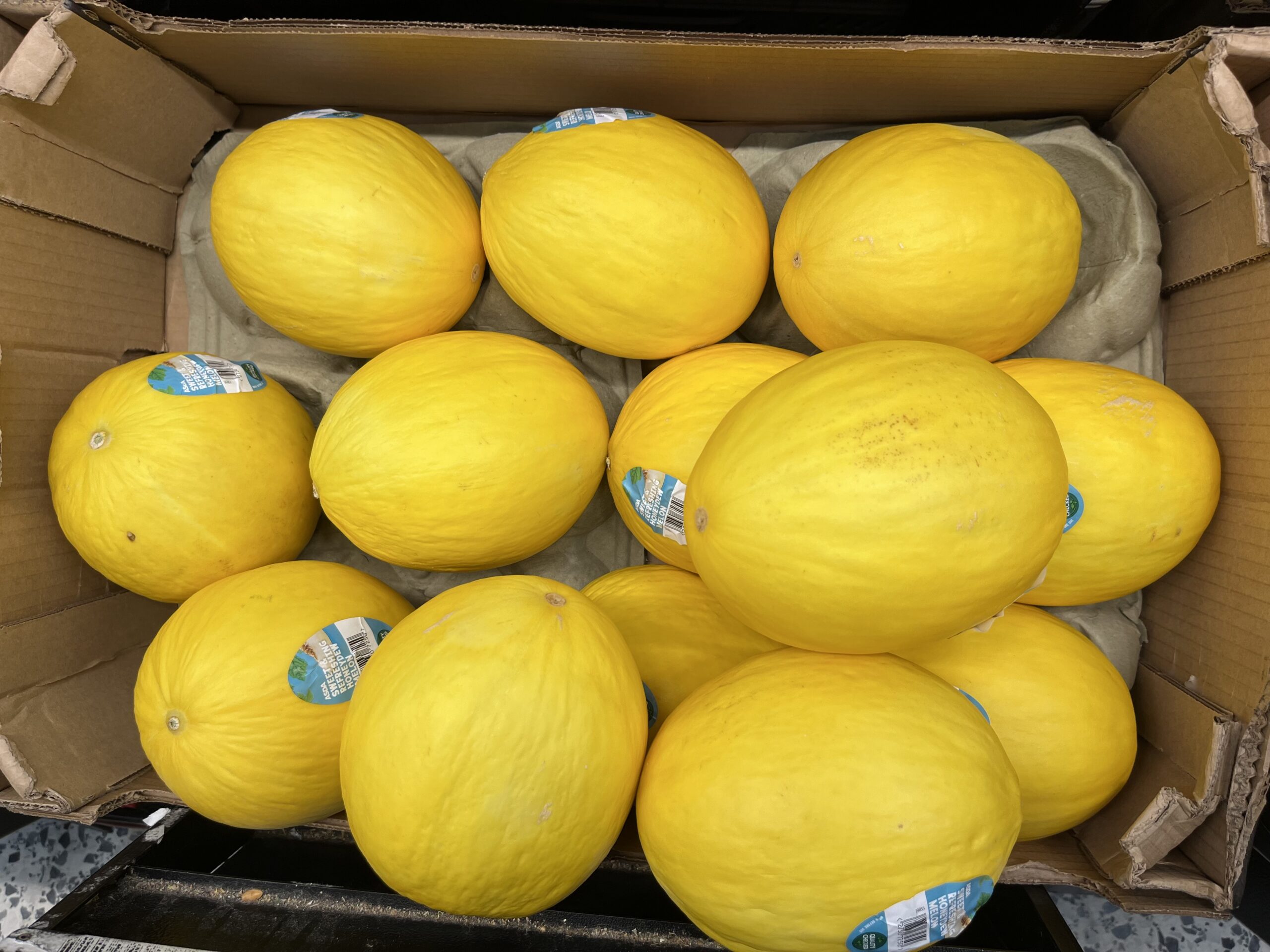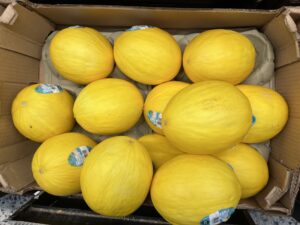
In the Gospel of John, purportedly written by the community that John started, up in the Qumran desert area, we read of their take of what Jesus said nearing his death. Jesus has been speaking with his disciples about his immediate future, but they weren’t understanding the message. He foretells what we might read of in Chapter 20 when, in this Gospel, Easter and Pentecost are merged into one. Jesus pops outside and speaks of what he can see.
John 15: 1-8
This is the final ‘I am’, of which there are 7 in this Gospel. How does what Jesus says compare to what we conjured up earlier?
He speaks of the ‘true vine’ as if there is another one that isn’t as good, perhaps less authentic than his vine. It’s odd that Jesus uses the vine as a metaphor as, in Isaiah 5, from the Hebrew Testament, the vine there, the disciples, would have recognised that the very best vineyard was planted but wild animals had trampled it down, no rain had fallen on the place, and the gardeners failed to prune it. They had expected a pleasant garden, a crop of justice but they found oppression, or so it reads.

Generally, vines are thought of as persistent, beautiful, fruitful, and lifegiving: such as with peas, green beans and even melons – yes, that surprised me as well. However, vines can also be constricting, life sucking and overbearing: such as with ivy and jungle vines. I wonder what Tarzan might have thought of that?
So, one thing we might draw out when comparing the two types of vine would be that fruit-bearing is a positive attribute.
“Growth is not the goal but fruit-bearing”
Jesus uses the phrase ‘the word that I have spoken to you’ (John 15: 3). Recall that although Jesus is described as the Word in John Chapter 1, the Word is not capitalised again throughout John’s Gospel. The underlying message here is that we must listen to what Jesus is saying to us, and not become fixated on our interpretation of an interpretation of a translation of the Gospel. If our faith means anything to us, we must be willing to pause, be with God, to really discern his message to us.
OK, so he uses ‘abide’ often: what does that mean? It can mean to dwell, to endure, to hold out, to remain – I prefer pause.
But in which type of vine do we pause within?
The vine Jesus is describing is one that both he, you and me, and others all are entwined within. We don’t have our own specific vine, but we are grown as one with Jesus. Try to imagine that: something indistinguishable to Jesus.
As we are as one with others, we can also be mutually accountable. We can listen to what other say and possibly change, so we can remain fruitful. Hence, the mention of pruning.
We could operate alone, separated from all other vines, and then find that we follow the path of the inauthentic vine.
But pruning, merely the mention of this suggest that we look down at our shoes/socks/feet (delete what doesn’t apply). Is pruning always a bad thing? Does it not lead to a healthier plant? What do the gardeners amongst us think?
The closing of a church might be thought of as a bit of a severe pruning exercise. But it could also be seen as an opportunity to be released, to grow more freely, free from the constrictions of the past – unless we want to hold onto them. Hold onto, you mean abide?
This vine of Jesus and us all, yous, is our community. It isn’t static, not limited to just a holy huddle, but a living, growing, thriving organism. We are one.
I attend a community where upon arrival people shake the hands of all who attend, or you can get a hug if you so wish. People know your name. You are welcomed. You come as one, and are respected for who you are. When you start to speak you use the expression ‘I am’ – how odd. You speak openly, honestly, truly authentically. It could be about how you are struggling to connect with God, or how life really sucks at the moment, or that you have hit rock bottom. People connect with them, offer to help and support them. When they ask for that support, people not only ring and check how they are doing, they are prepared to visit: to listen and support them along their journey. For they know that others will do that for them as well. I am not part of their community, but I am afforded that privilege of being checked: “are you ok?”
Is our church a withering branch?
Why not ask others with whom you trust what they think, that they’ll speak authentically. Don’t immediately jump to the worst possible conclusion, don’t catastrophize. Their answer may not what we feared: it may not be the end.
Think of those who have retired. The end of their working career and we can reflect on why they are so busy all of the time! One phase has come to an end, a new beginning emerges, one of bearing fruit in a different way. I suppose that is a post-easter message of good news.
Have you ever had a visitor from afar pop into the church?
I recall one Sunday morning, we were all giving a hymn some laldy, when this man came in with a camera. He first loitered at the back but then ventured along the side of the church. He took pictures of the stained glass windows and of the arch. Someone broke free from verse 4 and popped across to ask “could they help?”. “No, I am just admiring your architecture” he responded. The church member was stunned, amazed and speechless. The visitor calmly continued and then left the church. How do we greet an unexpected visitor?
Acts 8: 26-39
The main character here is Philip, one of the new deacons. He’s so new, he is still shiny.
Previously, Stephen has been killed by stoning – still an active act in places like Afghanistan, it would seem. The followers of Jesus have scarpered to, of all places, Samaria. Samaria? Isn’t that the region that Jesus stumbled into with that women at the well (Read all about it in John Chapter 4)
Philip is there in Samaria and his preaching has been very beneficial. Recall that the goal is not growth but fruit bearing. Peter and John soon follow the deacon to see what’s going on in Samaria.
“The deacon leads, the presbyters follow” I think it says that somewhere.
The voices of the followers of Jesus are being heard in unusual places. That’s good, isn’t it?
Along comes a Eunuch. Who? What? What would they say?
“I am from Ethiopia, I am a wealthy diplomat and I work in the Royal house: why? Because of who I am: I am regarded as safe with all in the house. I am able to read Greek but I am needing some help in understanding what you regard as from Isaiah (possibly Isaiah 56: 4-5)
“It’ s like a celebrity being invited to sit alongside us on the bus into the St Enoch’s Centre as they ask us to explain our faith.” What would you say?
In this story, racism isn’t even a feature – as it shouldn’t be today. Nor is their sexual status – as it shouldn’t be today.
The Eunuch is invited to be baptised by Philip. What no checking with CPD? No, he gets on with it. There’s no stated liturgy, ritual or vows – it’s off the cuff, natural, instantaneous. Beautiful
This is a baptism, a welcome into the community of God, belonging to that one vine well before the welcome of Gentiles was formally mentioned 3 chapters later. This passage speaks to me about our response to all people regardless of race, colour, sexual orientation or gender. God sees the person in front of us, as so should we. No labels, just loved.
Philip invited the Eunuch to take their place within the vine where they could abide with God, where they lived. It did not necessarily mean alongside Philip, or in the places they attended.
When we hear of barriers being raised, let us seek that mutual accountability and challenge those that seek to inhibit God’s love.
Let God’s kin_dom flourish.
I am really enjoying the dialogue
Good stuff Bob – it has been a while but I do check in with this site from time to time and I really value what yoiu are doing. I agree – let’s build a community! Roger Munday (Blackshaw Head)
Thank you Roger. Soon to be moving onwards albeit still within 🏴.